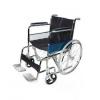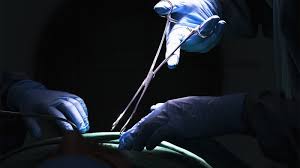
Breaking News
 Trump says 'not planning' fire Fed Chair Powell after reports suggest Powell ouster coming *
Trump says 'not planning' fire Fed Chair Powell after reports suggest Powell ouster coming *
 Watch: Alex Jones Delivers Emergency Message To President Trump...
Watch: Alex Jones Delivers Emergency Message To President Trump...
 BREAKING: FBI Deputy Director Dan Bongino Still At War With AG Pam Bondi,...
BREAKING: FBI Deputy Director Dan Bongino Still At War With AG Pam Bondi,...
 Walter Kirn Provides Update on Luigi Mangione Case and the Strange Parallels to Lee Harvey Oswald
Walter Kirn Provides Update on Luigi Mangione Case and the Strange Parallels to Lee Harvey Oswald
Top Tech News
Magic mushrooms may hold the secret to longevity: Psilocybin extends lifespan by 57%...
 Unitree G1 vs Boston Dynamics Atlas vs Optimus Gen 2 Robot– Who Wins?
Unitree G1 vs Boston Dynamics Atlas vs Optimus Gen 2 Robot– Who Wins?
 LFP Battery Fire Safety: What You NEED to Know
LFP Battery Fire Safety: What You NEED to Know
 Final Summer Solar Panel Test: Bifacial Optimization. Save Money w/ These Results!
Final Summer Solar Panel Test: Bifacial Optimization. Save Money w/ These Results!
 MEDICAL MIRACLE IN JAPAN: Paralyzed Man Stands Again After Revolutionary Stem Cell Treatment!
MEDICAL MIRACLE IN JAPAN: Paralyzed Man Stands Again After Revolutionary Stem Cell Treatment!
 Insulator Becomes Conducting Semiconductor And Could Make Superelastic Silicone Solar Panels
Insulator Becomes Conducting Semiconductor And Could Make Superelastic Silicone Solar Panels
 Slate Truck's Under $20,000 Price Tag Just Became A Political Casualty
Slate Truck's Under $20,000 Price Tag Just Became A Political Casualty
 Wisdom Teeth Contain Unique Stem Cell That Can Form Cartilage, Neurons, and Heart Tissue
Wisdom Teeth Contain Unique Stem Cell That Can Form Cartilage, Neurons, and Heart Tissue
 Hay fever breakthrough: 'Molecular shield' blocks allergy trigger at the site
Hay fever breakthrough: 'Molecular shield' blocks allergy trigger at the site
Organ harvesting exposed: The chilling reality of 'brain death' and how hospitals profit...

You're lying on the cold operating table, paralyzed but aware.
The anesthesia was supposed to dull your mind and erase sensation — but something went wrong. Instead of slipping into unconsciousness, you were left paralyzed, unable to move a muscle, twitch, or scream. Monitors beep around you, confirming your "brain death" to the surgeons, but inside, your mind screams in fleshly prison. Your loved ones are mourning, tugging at your arms, hoping you will twitch or move a muscle. But they've been brushed aside, for you are an organ donor, and the ICU team is preparing to harvest (procure) your organs for preservation and transplant. They only have so much time to retrieve the organs, so they speed up the process, pushing the family aside.
The scalpel glides across your abdomen, splitting skin and muscle with clinical precision. You feel the burn of the blade, the tug of flesh parting — but no one hears your silent agony. The surgeons work efficiently, talking over your body as if you aren't there. And technically, to them, you aren't. You're just a vessel marked for salvage, your organs set to be preserved and delivered to wealthy, foreign recipients who will pay a high price to acquire your organs.
You didn't have health insurance, so you were perceived as a high cost when you initially came into the emergency room. But when you first arrived, the ER doctors saw your vulnerabilities; they saw the signs of brain swelling and impending brain death, and they knew your were an organ donor. They knew exactly how long it would take before you could become "brain dead" and they knew how to delay proper medical care to get what they wanted out of you.
Now, fingers probe beneath your ribs, shifting vital organs that should have never been touched by outside hands. Your liver is lifted, connections severed; you feel every tug, every snipped vessel like electric shocks to your core. Your skin is grafted; your eyes are plucked; arteries carefully procured. Your lungs collapse as they're taken, leaving you suffocating while your still-living brain starves for air that will never come.
You feel the rhythmic thud of your own heart — once your life's metronome — now squeezed by a surgeon's grip. Cold solution flushes through it, distancing it from your body as it slows… stops… and is lifted away. Your consciousness doesn't die with it. Trapped in a failing nervous system, you spiral into a void of pain and isolation as the world moves on without you.
Doctors declare the harvest a success. Your organs will live on in strangers. But you — what's left of you — linger in the mangled remains of flesh and bone, aware until the last spark of brain activity flickers out...

 AI Getting Better at Medical Diagnosis
AI Getting Better at Medical Diagnosis

